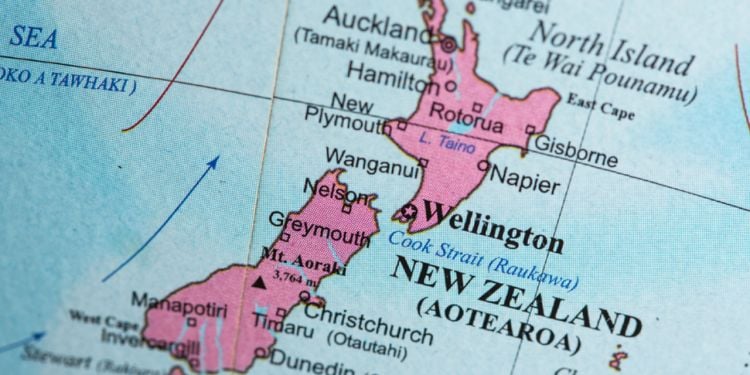
Over the years, New Zealand has become a top destination for foreign professionals looking to boost their careers abroad. Working in New Zealand may be different from working in your home country, but finding a job can be easy with a little guidance. Here is an insight into the local labor market.
The work culture in New Zealand
Work culture in New Zealand is generally quite relaxed and informal, with a strong emphasis on work-life balance. The country has a diverse economy and workforce, so work culture can vary depending on the industry and company. However, some general characteristics are common to many businesses in New Zealand.
One aspect of New Zealand's work culture is a focus on teamwork and collaboration. Many businesses in the country encourage employees to work together and share ideas, and there is often a strong sense of camaraderie among co-workers.
Another important aspect of work culture in New Zealand is the value placed on diversity and inclusion. The country has a strong commitment to equality and respect for all people, and this is reflected in the workplace.
In terms of work-life balance, New Zealand is known for having relatively shorter workweeks and more vacation time compared to other countries. This can vary depending on the industry and company, but many businesses in the country encourage their employees to take time off and prioritize their personal lives. Depending on your company, you may not find many people in the office after 5 pm. Think 4 pm finishes on a Friday, and focus on what your plans are for the weekend.
Overall, the work culture in New Zealand tends to be casual, friendly and focused on achieving a healthy balance between work and personal life.
Job opportunities in New Zealand
New Zealand has a diverse and growing economy, and there are many job opportunities available for expats in the country. Some of the industries that are currently experiencing strong demand for workers include technology, healthcare, construction, and tourism. Due to the size of the country, even the largest companies in New Zealand will likely have fewer employees than you are used to at home. This does mean that you're more likely to be heard and have a great opportunity to progress in your career.
Those who have specialized skills and experience may have an advantage when it comes to finding employment in New Zealand. However, there are also many entry-level positions available in various industries, so it is worth considering a wide range of options.
To find job opportunities in New Zealand, begin by searching online job boards and websites. It can also be helpful to network with other expats and locals, as many job opportunities are not advertised publicly.
Of course, it is important to be aware of the specific visa requirements for working in New Zealand. Depending on your nationality and the type of work you will be doing, you may need to apply for a work visa before you can start working in the country. It is also a good idea to research the local job market and salary expectations before they arrive in the country.
Industries with the most job opportunities for expats in New Zealand include:
- Technology
- Healthcare
- Education
- Construction
- Agriculture
There are also many job opportunities for expats in other sectors, such as finance, tourism, and engineering. For those seeking more casual or seasonal work, New Zealand has a well-established horticultural industry.
There are, of course, some limitations to be aware of when looking for work in New Zealand. Due to the small size of the country, the labor market may differ from your own country. Things to be aware of when looking for work in New Zealand include:
- Competition: The job market in New Zealand can be competitive, particularly in certain industries and regions. This means that it may be challenging to find a job, especially if you are new to the country or have limited experience.
- Limited job opportunities in certain areas: Some parts of New Zealand have a more limited job market compared to others. For example, rural areas may have fewer job opportunities than urban centers.
Overall, the job market in New Zealand is diverse and dynamic, with many opportunities available for skilled and motivated workers. However, it is important to be aware of what obstacles you might face and to be prepared to adapt to the local job market and culture.
Labor shortages in New Zealand
Immigration New Zealand recently expanded the Green List, which is a list of in-demand occupations that qualify for a fast-track to residence or have access to a work-to-residence pathway. Consulting the list is an excellent way to determine which skill areas require labor from overseas. Some of the most in-demand roles include:
- Construction Project Manager
- Quantity Surveyor
- Civil Engineer
- Structural Engineer
- Geotechnical Engineer
- Electrical Engineer
- Telecommunications Network Engineer
- Doctors/Medical professional
- Registered Nurse
- Veterinarian
- Software Developer
It's important to note that the Green List is regularly updated, so it's a good idea to check the official website of Immigration New Zealand for the most current information, as well as the top-tier Green List roles. There are also massive shortages in the tourism and hospitality sectors. This can be an excellent option for younger travelers wanting to work in the outdoors or in the restaurant industry to fund their travels. Similarly, agriculture and horticulture industries need workers to harvest crops in seasonal cycles, so the summer in New Zealand can be an excellent time to find casual work if you are coming to New Zealand as a backpacker.
Salary expectations in New Zealand
Salaries for expats in New Zealand can vary depending on several factors, such as the industry, job position, level of experience, and location.
Compared to other countries, New Zealand's salaries for expats are generally lower than those in the United States and Western Europe but are higher than those in some other countries in the Asia-Pacific region, South America, and Eastern Europe.
Here are some average annual salaries for a few professions in New Zealand:
- Software Engineer: NZD 82,000 - NZD 120,000
- Accountant: NZD 50,000 - NZD 85,000
- Nurse: NZD 49,000 - NZD 83,000
- Marketing Manager: NZD 80,000 - NZD 120,000
- Project Manager: NZD 85,000 - NZD 140,000
Bear in mind that these figures are broad estimates. When applying for a job in New Zealand, always establish your pay expectations early on and get clear information about what your salary will be. It's also worth doing some research into the cost of living in New Zealand, as your salary may not go as far as it did in your home country.
Writing your CV for New Zealand
When formatting your CV for employment in New Zealand, it is important to keep in mind that the format and content may differ slightly from those in your own country.
Here are some tips to help you create a CV that is effective and professional:
- Keep it concise: CVs in New Zealand are typically shorter than those in other countries, so aim to keep your CV to a maximum of two or three pages.
- Use a clear and easy-to-read layout: Use headings and bullet points to organize your information and make it easy for the reader to find what they are looking for.
- List only the jobs that you have had that are relevant to the role
- Give examples of skills you have used and gained from past roles
- Give descriptions and details of previous companies you have worked for, as Kiwi employers may not be familiar with your previous employer
- Be positive about yourself, but don't brag.
It may also be useful to make a note of your legal work status so employers know whether or not they have to assist you with getting a visa. You may also want to tailor your CV to each job, as certain parts of your work experience may benefit you in different ways for different jobs. Consider getting a free CV review at TopCV.
Job interviews in New Zealand
Job interviews in New Zealand are generally similar to the job interview process elsewhere and follow a standard format where upper-level staff from the organization will ask you questions about your work experience and general suitability for the role. Of course, the interview format may vary depending on the workplace and its culture, but you should be informed in advance about anything out of the ordinary or if your interview involves any aptitude tests or other assessments.
Though New Zealand is a country that is known for its casual culture, it is a good idea to dress smartly for your interview, arrive on time, and generally present a professional persona – even if the role or company seems casual. The New Zealand Careers website offers tips regarding interview preparation, but, in general, it will serve you to have researched the company, re-read your application materials, and prepared for some standard interview questions. It is always a good idea to come to an interview with a few questions you would like to know about the role or the company, which is an excellent way to seem like an engaged interviewee.
Qualifications in New Zealand
Qualifications (diplomas and degrees) are often an essential part of job applications. Certain types of employment require specific skill levels and requirements, and you will need to prove that you have the appropriate qualifications. You will need to bring either your original qualification documents or certified copies.
It is possible that your overseas qualification may be recognized as valid in New Zealand, but it will depend on a number of factors.
In general, qualifications from countries with a similar education system to New Zealand, such as Australia, the United Kingdom, and the United States, are likely to be recognized as equivalent. However, qualifications from other countries may require further assessment before they are accepted.
To determine if your overseas qualification is valid in New Zealand, you can contact the New Zealand Qualifications Authority (NZQA). The NZQA is responsible for evaluating and approving foreign qualifications for use in the country.
To have your qualification assessed by the NZQA, you will need to provide documentation, including your academic transcripts and any other relevant information about your studies. The NZQA will then assess your qualification to determine if it is equivalent to a New Zealand qualification.
It is important to note that even if your qualification is recognized as valid in New Zealand, you may still need to meet other requirements in order to work in certain fields or industries. For example, you may need to obtain a professional license or meet other regulatory requirements.
Overall, it is a good idea to research the specific requirements for your field or industry in New Zealand and to contact the appropriate regulatory body or professional organization for more information. If you are working in the medical, dental, or accounting fields, you also will need to register with the appropriate boards.
Job-hunting in New Zealand
Whether you are planning on applying for a job before you arrive in New Zealand or once you are there, there are a few websites that you should focus your search on as a start. Trade Me is a great option, as well as Seek and Indeed. LinkedIn is also becoming increasingly popular with companies as well. Overall, it is important to be proactive and persistent in your job search and to be prepared to adapt to the local job market and culture.
If you are looking for work in a particular field, your best option will be to contact a recruitment agency that specializes in your field of work. Most of the time, you will just need to get in touch, introduce yourself and send over a copy of your CV. Once you are in the country, you will most likely have a phone interview/meeting or an in-person meeting so they can get to know you and gain a more nuanced understanding of what you want. If you work for a larger company overseas, try talking with them to see if they have any Kiwi counterparts on the off chance you can transfer to the New Zealand branch.
If you are staying in a hostel, the staff there may have an idea of what positions are available nearby, or there might even be a job board up. Companies like the Temp Centre are designed to work with people on their New Zealand Working Holiday Visas, organizing hospitality work at above minimum wage. If this is something you are planning on signing up for, make sure you have brought black trousers and shoes in your luggage with you.
Good to know:
You will need to sign up for a tax number from the IRD (Inland Revenue Department) so that your wages are taxed properly. An IRD (Inland Revenue Department) number is a unique number assigned to individuals and businesses by the New Zealand government for tax purposes. If you are a foreigner living and working in New Zealand, you will need to obtain an IRD number in order to pay taxes and access certain government services.
We do our best to provide accurate and up to date information. However, if you have noticed any inaccuracies in this article, please let us know in the comments section below.








